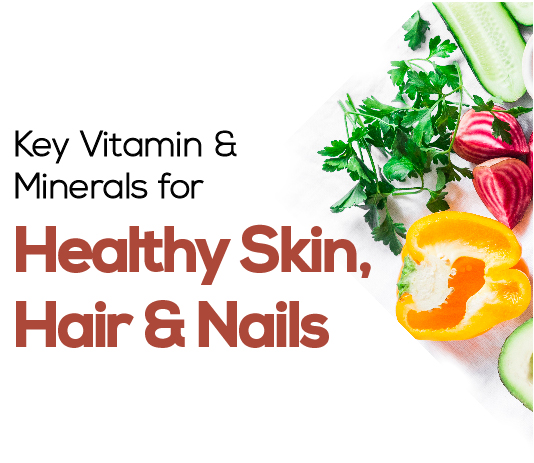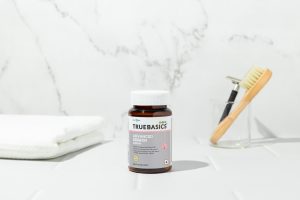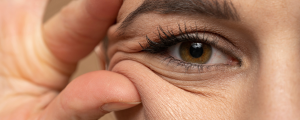Dermatological concerns have been central to human lives since ancient times. Old wives’ tales and dadi ma ke nuskhe are replete with potent advice for taking care of one’s hair, skin and nails. However, modern living has thrown most of it in disarray. The market is littered with products that target various concerns – from brittle nails, acne eruptions, dandruff to hair loss, dull skin and signs of aging.
Why are these problems so abundant?
Our skin, hair, and nails are exposed to several factors that affect their quality and health. Even the slightest changes in the environment could be potentially detrimental to their health and upkeep. These factors include:
1. Stress
Cortisol is a stress hormone that is secreted by the adrenal glands, located on top of the kidneys, in response to the ‘fight-or-flight’ mode. A body under stress continuously produces cortisol, which increases the production of sebum, leading to oily skin, scalp, and hair. This makes them ripe centers for acne breakouts and dandruff. Excessive cortisol damages the fat layers of the skin and makes it dry, which affects the ability of the skin to heal itself after an injury [1].
Stress is also known to aggravate and produce flare in dermatological conditions like eczema, psoriasis, and acne, in addition to sparking hair loss. This excessive hair fallout is referred to as telogen effluvium [2].
Stress also triggers an increase in the production of free radicals, the rust of the human body, which damages the cells of the skin and hair.
2. Pollution
In India, air and water pollution are ubiquitous. These pollutants include air-borne allergens, particulate matter, noxious fumes from the traffic and hard water. Prolonged exposure to pollutants can cause chronic dandruff, breakage in the hair, premature skin aging, hyperpigmentation and acne breakouts [3]. Conditions like eczema, rosacea and atopic dermatitis can also deteriorate further due to the pollution.
3. Smoking
While smoking is widely known to cause cancer, smoking is also associated with premature aging and a host of other dermatological concerns. Tobacco smoke induces oxidative stress and initiates the degradation of collagen through an enzyme called MMP-1. It constricts blood vessels, making it difficult for oxygen to reach the cells on time, thereby accelerating the process of cell death and aging. Smoking also causes yellowing of nails, and research has found that smokers tend to have more extensive and severe psoriasis than non-smokers [4].
4. UV rays
Ultraviolet rays are the high energy rays from the sun. Prolonged exposure to UV rays can damage the skin cells, cause sunburn, and trigger premature ageing of the skin. Furthermore, UV rays can cause the hair to become dry, dull and brittle.
5. Nutrient deficiencies
Our skin, hair, and nails require constant nutrition to maintain health, combat damaging factors and replace dead cells. The body needs key nutrition to produce collagen, the building block of skin, and Keratin, the key protein for hair and nail growth. A deficiency in key nutrition can hamper their growth as well as damage their defence mechanism against external factors.
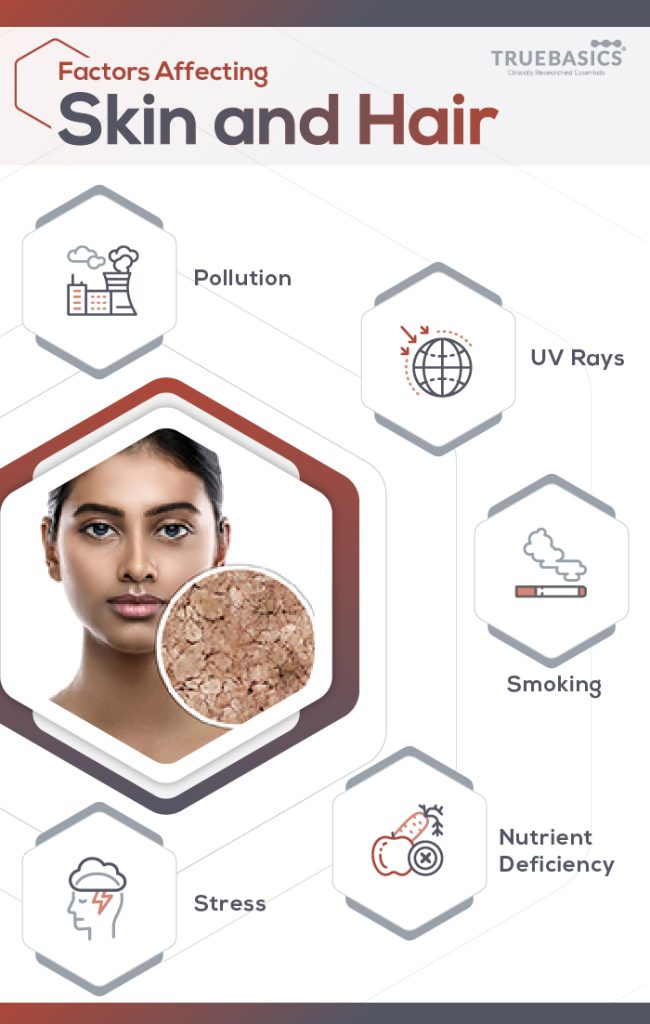
How to Combat the Skin & Hair Issues?
While external and internal factor threatens the skin and hair health, a diet rich in vitamins and minerals can help transform and strengthen the body’s mechanisms from within to combat these stressors. Dive right in to know the nutrients one should stock up on when surrounded by damaging environmental factors on a day-to-day basis
1. Biotin
Also known as Vitamin H (for hair and skin) or Vitamin B7, biotin is a water-soluble nutrient that acts as a cofactor in the metabolism of carbohydrates, fats, and proteins. It plays a vital role in protein synthesis, especially that of keratin and therefore is essential for healthy nail and hair growth. Studies have shown show that poor hair and nail growth due to underlying pathological conditions showed improvement after receiving biotin [5]. Since our intestinal bacteria synthesize biotin and it is readily available in a wide range of foods, biotin deficiency is rare. Nonetheless, it has dermatological consequences such as thinning hair, brittle fingernails and skin rashes due to the unusual distribution of facial fat.
Food sources like organ meat, nuts, legumes, whole grains, bananas, and egg yolk contain adequate biotin to meet one’s daily requirements.
2. Vitamin B-complex
While all the B Vitamins hold tremendous benefits for our health, Vitamin B3, Vitamin B6 and Vitamin B12 play important role in dermatological health.
Vitamin B3
Vitamin B3, also known as Niacin, is an essential nutrient, meaning it is necessary for the normal functioning of the body and cannot be synthesized by the body. The ‘active’ form of niacin acts as a coenzyme to over 400 enzymes and catalyzes reactions in the body [6]. Dietary intake of niacin may help tackle multiple skin & hair problems including loss of moisture, aging spots, and pigmentation.
Food Sources like poultry and fish contain niacin in its ‘active’ form. Plant-based sources of niacin include nuts, legumes, and grains.
Vitamin B9 & B12
Vitamin B9 (also known as folate) and Vitamin B12 (also called cobalamin) work in synergy and contribute to the development of new cells by participating in the synthesis of nucleic acids. A study on skin firmness reported that topical application of folate increased firmness of mature skin by improving collagen density [7]. An excess or deficiency of cobalamin manifests in the skin through hyperpigmentation, hair and nail conditions [8].
Green leafy vegetables, nuts, and grains are good sources of folate. Cobalamin can only be obtained from animal sources such as seafood, poultry, dairy products.
3. Antioxidants
Free radicals scavenge the electron from the cells and tissues thereby damaging the body. They form as a result of normal metabolism as well as due to external environmental factors. Antioxidants counter the free radicals and prevent the damage to the body. Vitamin A, C, and E are strong antioxidants and can be obtained from commonly available dietary sources.
Vitamin C
Vitamin C is the most important water-soluble antioxidant. It is an essential nutrient that behaves as a cofactor for chemical reactions that stabilize collagen. Moreover, it increases the absorption of iron and the bioavailability of selenium. Common outcomes of Vitamin C deficiency, including keratosis and enlarged hair follicles, can be attributed to impaired collagen synthesis.
The best sources of Vitamin C are citrus fruits, bell pepper, kale, guava, and broccoli.
Vitamin E
Vitamin E works in synergy with Vitamin C. It prevents collagen cross-linking, the shortening and thickening of collagen fibrils, and lipid peroxidation, the oxidative degradation of lipids in the cell membrane. Both these free radical reactions cause extensive cell damage and are linked to the aging of skin[9].
Few tablespoons of vegetable oils like sunflower oil, almond oil, and canola oil can easily cater to the body’s demand for Vitamin E. Other good sources include nuts, seeds, pulses, and green leafy vegetables.
Vitamin A
Vitamin A is crucial for cell turnover, where our body sheds dead skin cells off and replaces them with newer, younger cells, thereby reducing the dryness of the skin. Studies have also reported a link between beta-carotene, the precursor form of Vitamin A found in plants, to the prevention of sunburn by suggesting that carotenoids reinforce the skin’s basal defence against UV rays. Vitamin A also helps in healing scars and tackling visible signs of aging. It may also help hydrate and regenerate growth in thin, brittle nails and prevent hair breakage.
Chicken liver, ghee, butter, carrot, green vegetables, sweet potato are few of the rich Vitamin A food sources
4. Vitamin D
Apart from playing an integral role in maintaining calcium levels in the body, Vitamin D also plays a central role in skin and hair health. Vitamin D receptors in the body keep a check on the unrestricted growth and multiplication of keratinocytes, the cells that make up the outermost layer of our skin, thereby preventing build-up of dead skin. Furthermore, it plays an important role in maintaining the integrity of hair follicles [10].
Sunlight is the best available Vitamin D source. It can also be obtained from fishes like salmon, mackerel, eggs, and mushroom.
5. Zinc
Zinc acts as a cofactor for over 1000 enzymatic reactions and plays major roles in cell growth, development and differentiation. Research shows that Zinc has integral functions in the maintenance of collagen, subcutaneous tissue and hair follicles [11], and shows promising signs as an alternative acne treatment [12]. Its deficiency induces telogen effluvium and abnormal keratinization in hair, along with skin conditions like seborrheic dermatitis and xerosis.
It can be obtained from oysters, meat, beans, and nuts.
6. Selenium
Selenium, although a trace element, is required for the synthesis of more than 35 proteins. It is a strong antioxidant that combats free radicals to preserve the hair follicle and its structural integrity. Multiple studies have shown that a deficiency of selenium might cause sparse hair growth, progressive hair loss, and sloughing of nails [13].
Dietary selenium can be found in meat, nuts, mushroom, and cereals.
7. Iron
Iron deficiency, or anaemia, is associated with scalp hair loss affecting the quality of life. Studies have reported a link between low iron levels and loss of hair [14].
Clam, organ meat, seafood, spirulina, spinach, and lentils are fantastic sources of iron.
8. Silica
Silica is another trace mineral that holds tremendous potential. It is required to produce collagen and is naturally anti-inflammatory. Dermatologists have long held the opinion that silica assists the skin in retaining moisture and is critical for repair and cell renewal [15].
Whole grain bread, oatmeal, bananas, spinach, and mango contain dietary silica.
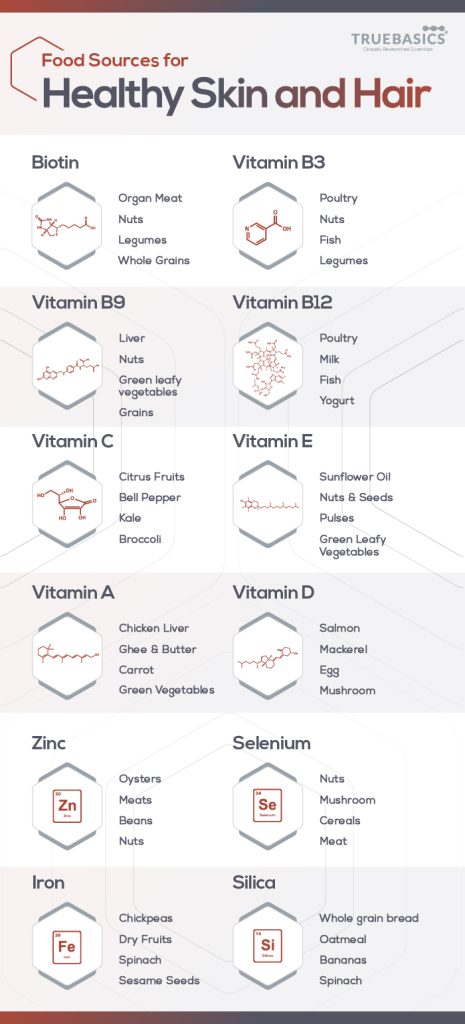
In conclusion…
As we age, our skin and hair also age with us. However, several environmental, physical and lifestyle factors can affect the health of our skin, hair, and nails. Nutrient deficiencies aggravate the damage to our skin and hair and inhibit healthy growth and maintenance. A balanced diet including key vitamins, antioxidants, and mineral can potentially strengthen the body’s defences and reinvigorate our skin, hair, and nails from within.
#ShareIfYouCare #RepublicofDeficiency
Sources
[1] https://www.ncbi.nlm.nih.gov/pmc/articles/PMC4082169/
[2] https://icahealth.com/wp-content/uploads/Effects-of-Stress-on-Hair-Skin-Nails-pamphlet.pdf
[3] https://www.ncbi.nlm.nih.gov/pubmed/28195077
[4] https://dermnetnz.org/topics/smoking-and-its-effects-on-the-skin/
[5] https://www.ncbi.nlm.nih.gov/pmc/articles/PMC5582478/
[6] https://ods.od.nih.gov/factsheets/Niacin-HealthProfessional/
[7] https://www.ncbi.nlm.nih.gov/pubmed/21332911
[8] https://www.ncbi.nlm.nih.gov/pubmed/25559140
[9] https://www.ncbi.nlm.nih.gov/pmc/articles/PMC3583891/
[10] https://www.ncbi.nlm.nih.gov/pubmed/31210464
[11] https://www.ncbi.nlm.nih.gov/pmc/articles/PMC5852775/
[12] https://www.ncbi.nlm.nih.gov/pubmed/29193602
[13] https://www.ncbi.nlm.nih.gov/pmc/articles/PMC5315033/
[14] https://www.ncbi.nlm.nih.gov/pmc/articles/PMC3678013/
[15] https://www.byrdie.com/silica-benefits

